Spring cycle ICS team leaders have been allocated their counterparts
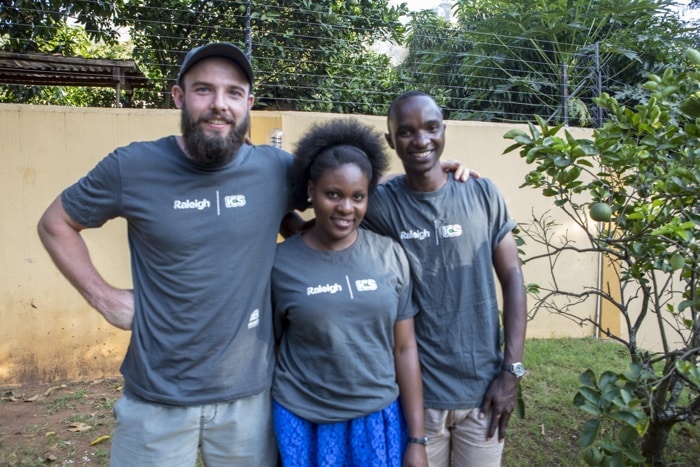
All ICS spring programme team leaders now understand which project they will be working on. They have also been allocated into groups of twos and threes in order to begin working together in their communities to reach their long-term project goals. U.K. and Tanzanian team leaders are placed together with the aim of encouraging fluid communication with the community and exchange between community members and volunteers. Each team leader tends to refer to their partner as their counterpart: On the ICS programme, U.K. and Tanzanian counterparts will work together for the duration of the programme in the same community.
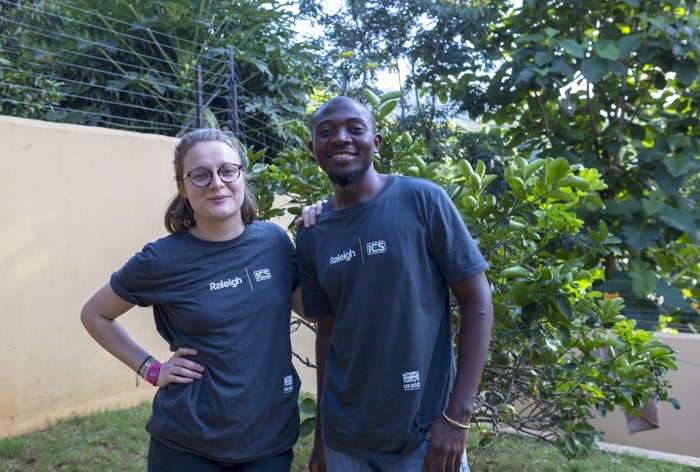
What projects will team leaders (ICS) be working on this spring cycle?
The team leaders and volunteer managers will be working in communities on the following three projects:
SWASH (schools, water, sanitation and hygiene)
Raleigh ICS and expedition teams will be working in selected villages in Tanzania’s Morogoro and Dodoma regions to improve the health and learning performance of school aged children – and, by extension, that of their families – by reducing the incidence of water and sanitation related diseases. (Source: What is SWASH? A definition: UNICEF; Water, Sanitation and Hygiene in Schools).
Over the next three months Raleigh SWASH programme volunteers will be constructing and maintaining much needed sanitation facilities whilst at the same time raising awareness of good hygiene practices amongst students and community members to ensure lasting behavioural change, in turn leading to improved SWASH outcomes.
NRM (natural resource management)
Based in the Mufindi District of Iringa Region in the Southern Highlands of Tanzania, volunteers will work with TFCG (Tanzania Forest Conservation Group) to establish tree nurseries in the villages they are based in. Use of the forests (and other resources) and rural livelihoods are inextricably linked: Forest and woodland occupy more than 40% of the total land area of the mainland (NEAP, 2012) in Tanzania and 90% of Tanzania’s energy consumption is from wood and charcoal (NEAP, 2012). Most of Tanzania’s montane forests possess high water catchment value which makes them a main source of major rivers and vital to the country’s water supply system (Convention on Biological Biodiversity, 2015).
Volunteers will be busy throughout their project running awareness raising sessions, planting seeds and then transplant seedlings and working alongside a TFCG field officer as well as community members to establish a long-term care plan for the seedlings and tree nurseries.
Livelihoods
More than 80% of Tanzania’s poor and extreme poor live in rural areas (World Bank Group, 2015) where unemployment rates are higher, and wages are lower than the national average (International Labour Office, 2015).
Majority of rural populations dependent on agriculture/subsistence living and these are increasingly vulnerable industries. Livelihoods volunteers will conduct action research and organise awareness raising sessions as well as an entrepreneurship course to enable young Tanzanians in rural regions (Morogoro and Iringa) to gain the necessary skills to start their own businesses. Community members will gain a certificate at the end of the course which enables them to show that they have gained new skills and therefore apply for grants to start a business.
The allocations: How do the team leaders feel about their allocations and what are they looking forward to?
ICS SWASH: Mgudeni, Kilombero
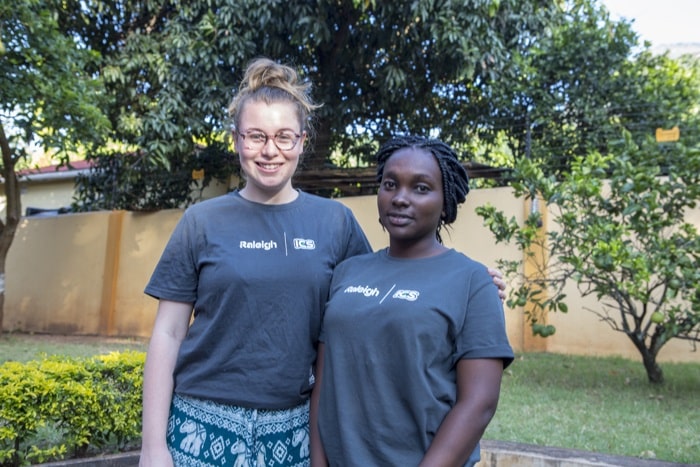
“I was really happy when I saw Regina’s photograph next to mine. I’m loving how well we are getting along already.” – Lydia Ogden. Lydia’s counterpart is Regina Mmasy.
“Before allocations I was nervous. But after getting to know my counterpart, I was happy because we had met the night before and got along straight away.” – Regina Mmasy
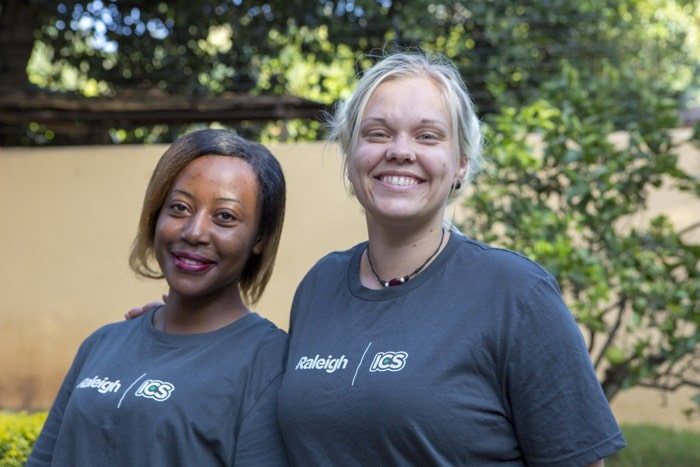
ICS Livelihoods: Ihombwe, Kilosa, Morogoro
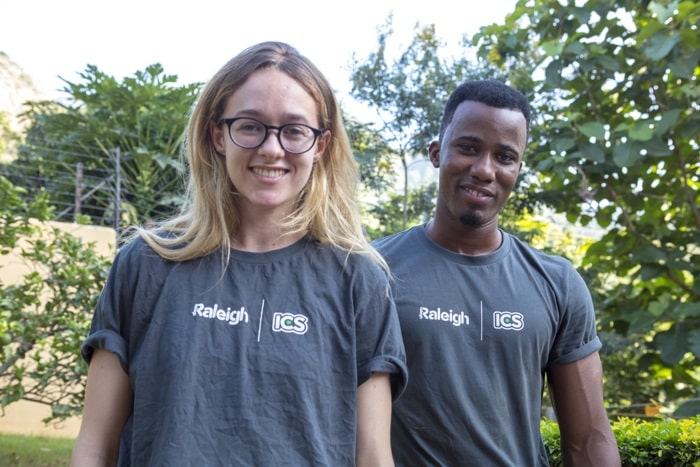
“We are most looking forward to getting to know the community and working together with our volunteers to make an impact on livelihoods.” – Kalogi Tambilije & Hollie Andrews are counterparts this spring cycle.
ICS Livelihoods: Lyamugungwe, Iringa Rural, Iringa
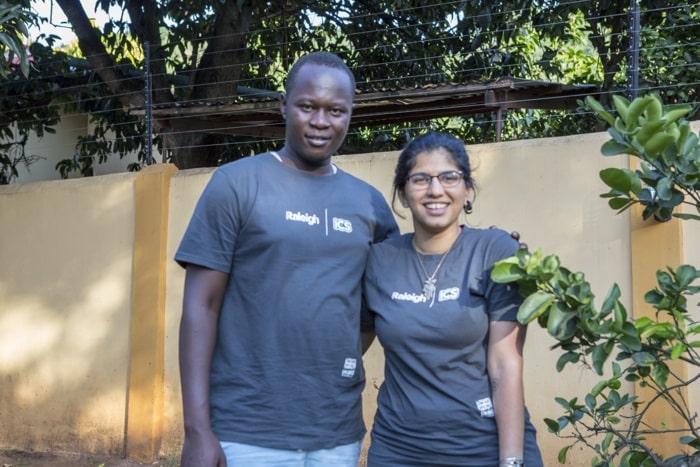
“I look forward to being more familiar with the environment. I will look at all things addressed in our training so as to know things clearly before all the volunteers arrive at the project site.” – Hendry Shirima who will be working with Sayali Sakharker.
ICS Livelihoods: Udumuka, Iringa Rural, Iringa
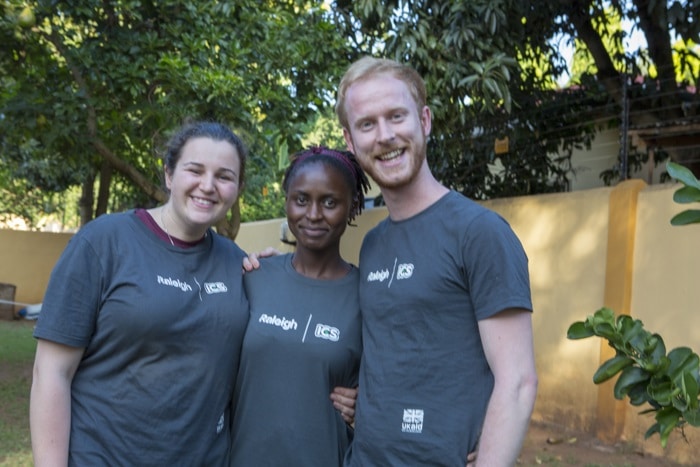
“I am already sharing a room with my Tanzanian counterpart. We spend a lot of time together talking about life in the U.K. and Tanzania. Our other counterpart is called Alastair and we sit with him everyday and socialise in the evenings.” – Libby Down. Libby’s counterparts are Alastair Browning and Diana Martin.
“I am most looking forward to the buying day of the livelihoods project in phase two where we will be able to tangibly see the impact of the new enterprises we have helped to facilitate. I cant think of much else that could be more rewarding!” – Alastair Browning.
ICS Livelihoods: Rudewa Gongoni, Kilosa, Morogoro
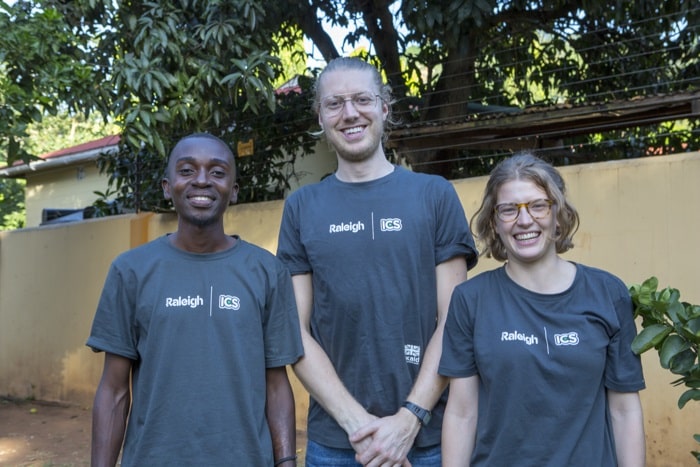
“I am most excited to put the first ten days of training intro practice for the first time and meet the people who will be out neighbours for the next three months!” – Josh Read. Josh’s counterparts are Abdallah Selega and Emily Rainbow.
“I am most looking forward to watching young entrepreneurs discover their potential and start to put new knowledge into practice by opening their businesses.” – Emily Rainbow.
“I am just looking to help young entrepreneurs to get the loans to actually help them start up and grow their businesses. I also look to provide secondary school students with the knowledge and skills to succeed by helping them to create entrepreneurial clubs.” – Abdallah Selega.
ICS WASH Ichonde, Kilombero
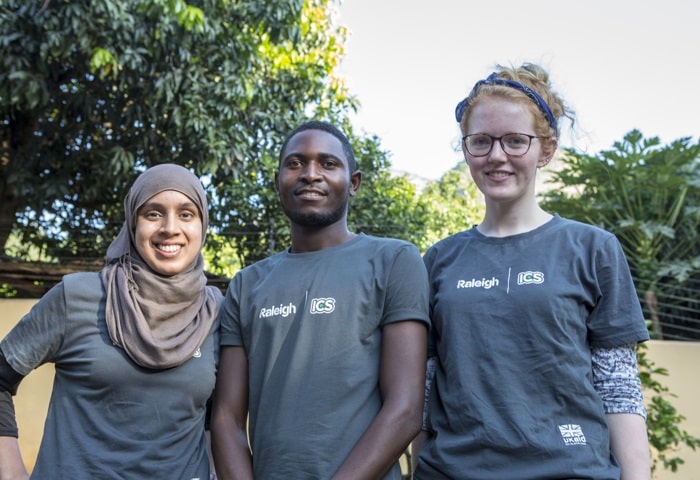
“Receiving my allocation with my counterparts was an amazing moment. I had a great one-to-one with Kim [deputy operations manager, SWASH] so I trusted her to make the right decision for me. Despite being open to both SWASH and livelihoods programmes, I was thrilled to have been placed with two counterparts on the programme I had hoped for. I’ve been settling in really well with my counterparts and I couldn’t be happier.” – Nafeesah Chaudhry. Nafeesah’s counterparts are Sadick Issa and Hannah Spencer.
“I am very excited to meet new people in my village placement because I think it’s the time to make a new connection together as we will be staying with them for three months. Also I am glad we are going to see a place where the project will be close to fieldbase – less travelling for us!” – Sadick Issa.
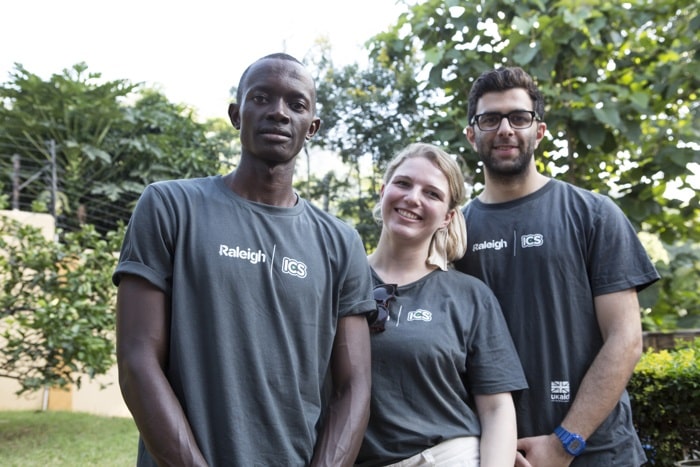
ICS Livelihoods: Usengelindete, Iringa Rural, Iringa
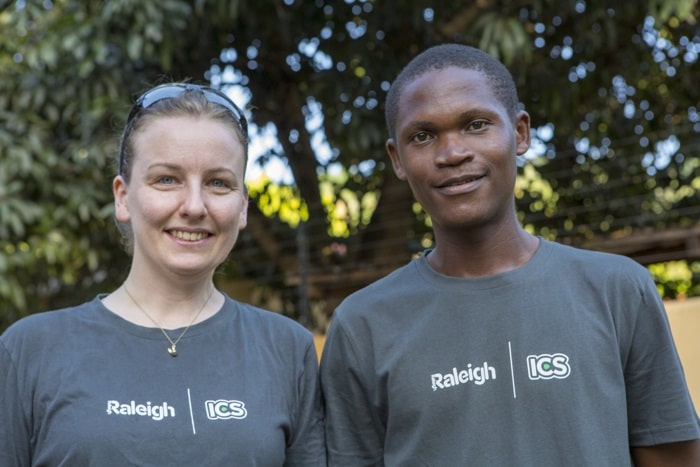
“We carried out an exercise which involved comparing each other’s ‘most important’ values, possessions, memories, people and goals and we found that we had much more in common than we all initially thought!” – Catherine Edwards. Catherine’s counterpart is Amiry.
“I am looking forward to experiencing new climates in the Iringa region, meeting a lot of people during the PPV such as the project partners, village leaders, young entrepreneurs, head teachers and our homestay mama and baba. I am expecting to know a lot of things about the village like traditional ways of living and communicating. I hope to have a good partnership with Catherine.” – Amiry Kiaza.
ICS Livelihoods: Msimba, Kilosa, Morogoro
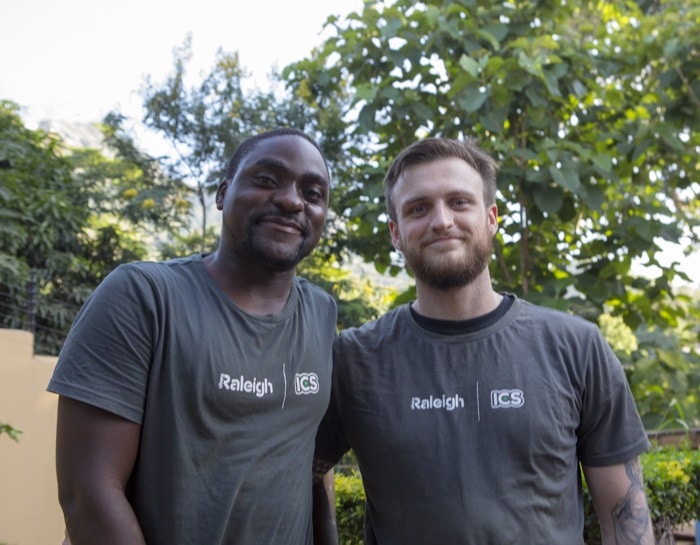
“I am very excited to promote awareness and a new outlook for my entrepreneurs in Kilosa. Moreover I am looking forward to helping my fellow young volunteers to raise their self development and the community at large.” Robert Luvanda. Robert’s counterpart is Dominic Lattimer.
What’s next for our ICS team leaders?
The ICS team leaders have spent today preparing all the kits for the upcoming project planning visit which they depart for tomorrow to their respective communities.
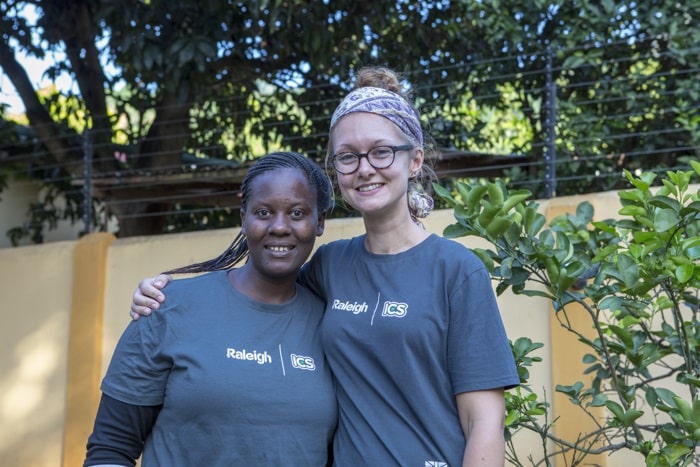
By putting inspired, passionate, and creative young people within communities for weeks at a time, they are able to engage with the local community and put in place programs that can raise awareness of the importance of each programme to the community each team leader and their counterpart are based in with their team.
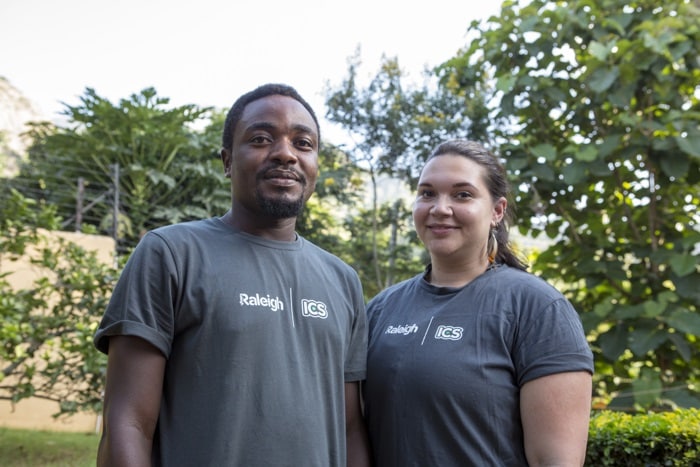
We hope these above comments by the team leaders themselves reflect how engaged all participants are in the programme and how much energy the young people are going to bring to their projects this cycle.
Words by Rebbie, spring cycle communications officer and photos by Hilary, spring cycle photographer.
Keep up to date with our progress on our blog and social media channels for spring cycle ICS programme progress.



